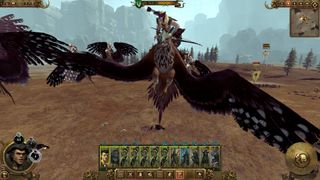The lows

Tyler Wilde: Surviving Symmetra
Before this week's update, I loved playing as Symmetra in Overwatch—she was sort of an underdog pick, prone to buzzing away ineffectively but able to sneakily turn the tide of a match with a few good turret placements and a deviously hidden teleporter. Now I feel guilty playing as Symmetra. In one brutal round this week, I scored 25 eliminations with the recently buffed beam wizard and the attackers never managed to budge the Eichenwald payload. I know how annoying that had to be for the attackers, because since the update there’s been a Symmetra harrassing me in every few attack rounds I play. She was always a bit annoying when played well, but now she feels annoying even when only played competently. The buzzing, drilling sound of a battery of turrets haunts me.
I’m glad Symmetra is more viable, I’m just worried she’ll also become more loathed. I do like that she gives splash damage dealers a secondary objective—for the love of God blow up those turrets—and things will probably balance out as strategies adapt. For now, though, I’ve stopped playing Symmetra because I feel bad when I score wave after wave of off-screen eliminations just by sticking some turrets above a doorframe and then drop someone by chasing them around with the left mouse button held down.
Chris Livingston: Link to the past
Not long ago I asked a few people how they liked Steam Link. The answer I typically got was “It works well, but I only used it once and now it just sits there.” Well, I finally bought one, set it up, and I’m happy to say that, yes, it does work well. And, I’ve only used it once and now it just sits there. I don’t know why, I guess I just never think about playing games on my TV. I like being at my desk too much. At least I can’t say I wasn’t warned.

Samuel Roberts: More Star Wars
If I want to play a good Star Wars game to go along with this weekend's release of Rogue One, I have an array of brilliant classics to choose from on PC. But how about something new? I'm not convinced enough by Battlefront's long-term prospects to invest in the Rogue One-themed DLC, despite how positive people seem to be on it. No, the Star Wars game I want to play has a stronger story element. Amy Hennig's Visceral Star Wars game could be the ticket. Until then, I guess I'll either download KOTOR or The Force Unleashed.
The biggest gaming news, reviews and hardware deals
Keep up to date with the most important stories and the best deals, as picked by the PC Gamer team.
Jarred Walton: Vega-tative State
AMD giveth, and AMD taketh away. Not that what they showed at the New Horizon event wasn’t impressive, with Ryzen and Vega running Star Wars: Battlefront Rogue One, but there’s a ton of Vega details that we’re not yet able to divulge. We can extract a few juicy tidbits from their Radeon Instinct information, like the fact that the MI25 is a 25 TFLOPS part, (12.5 TFLOPS for FP32), which is 45 percent higher than Fury X. Add in architectural improvements and… if I go down that route this will end up as another high.
Besides the ‘low’ of knowing a bunch of cool stuff that I can’t talk about, the big problem I have is the slated first half of 2017 launch window for Vega. This is exactly the same launch window we were given for Polaris at the December 2015 Tech Summit. Polaris eventually released in June, but pricing and availability were terrible for months, and it’s only in the past month or so that RX 480 has finally hit (and dropped below) the $199/$239 launch price MSRP. Nvidia’s 10-series wasn’t much better, particularly on the 1080 and 1070, but I worry that Vega will end up being the same story in many ways as Polaris.
June feels so far away right now, and I want Vega now, dammit! I also want Ryzen to be here today, not in February or March. I guess I’ll go hibernate for a couple of months.

Andy Kelly: War of attrition
This week I decided I wanted to get into the Total War series, which I've never managed to do despite many attempts. A poll on Twitter suggested the most recent game, Total War: Warhammer, would be a good place to start, so I got stuck in. And it's a great game, with some incredibly dramatic large-scale tactical battles. But there's a problem, and it lies within my own stupid brain. I can't stop giving up on a campaign and starting a new one.
I have this problem with almost every turn-based strategy game, whether it's Civilization or Endless Legend. I've played the Civ series for maybe 50-60 hours in total (I know, that's nothing for that series), but I've never made it to the end of a campaign. I always feel overwhelmed by my mounting bad decisions and decide starting a new one is the best course of action. And that's what I've been doing in Total War. But it has to stop, and one of my new year's gaming resolutions is to finish the dwarf campaign at least once without quitting.
Joe Donnelly: Virtual reality vs financial reality
After Dean Hall's recent scathing overview of VR development and how difficult it is for those creating virtual reality games to turn a profit, Eerie Bear Games' Joe Radak weighed in with similar thoughts this week. According to Radak, his studio's HTC Vive launch title Light Repair Team #4 saw Eerie Bear lose upwards of $36,000 meaning that, perhaps unsurprisingly, the game will likely never make money.
In a pretty thorough Medium post, Radak lays bare his ingoings, outgoings and financial shortcomings over the course of his game's development and suggests the majority of devs creating games for VR are in a similar if not worse position. Assuming this is true, it's really unfortunate for both the individuals involved and the technology itself. I obviously don't want to see developers fail and equally, from a selfish perspective, I really want virtual reality as a medium to succeed. If there's no money in making games for VR, as it stands, fewer devs will bother trying—meaning fewer people will buy VR headsets, meaning virtual reality could once again go the way of the dodo.
The collective PC Gamer editorial team worked together to write this article. PC Gamer is the global authority on PC games—starting in 1993 with the magazine, and then in 2010 with this website you're currently reading. We have writers across the US, UK and Australia, who you can read about here.
Most Popular


